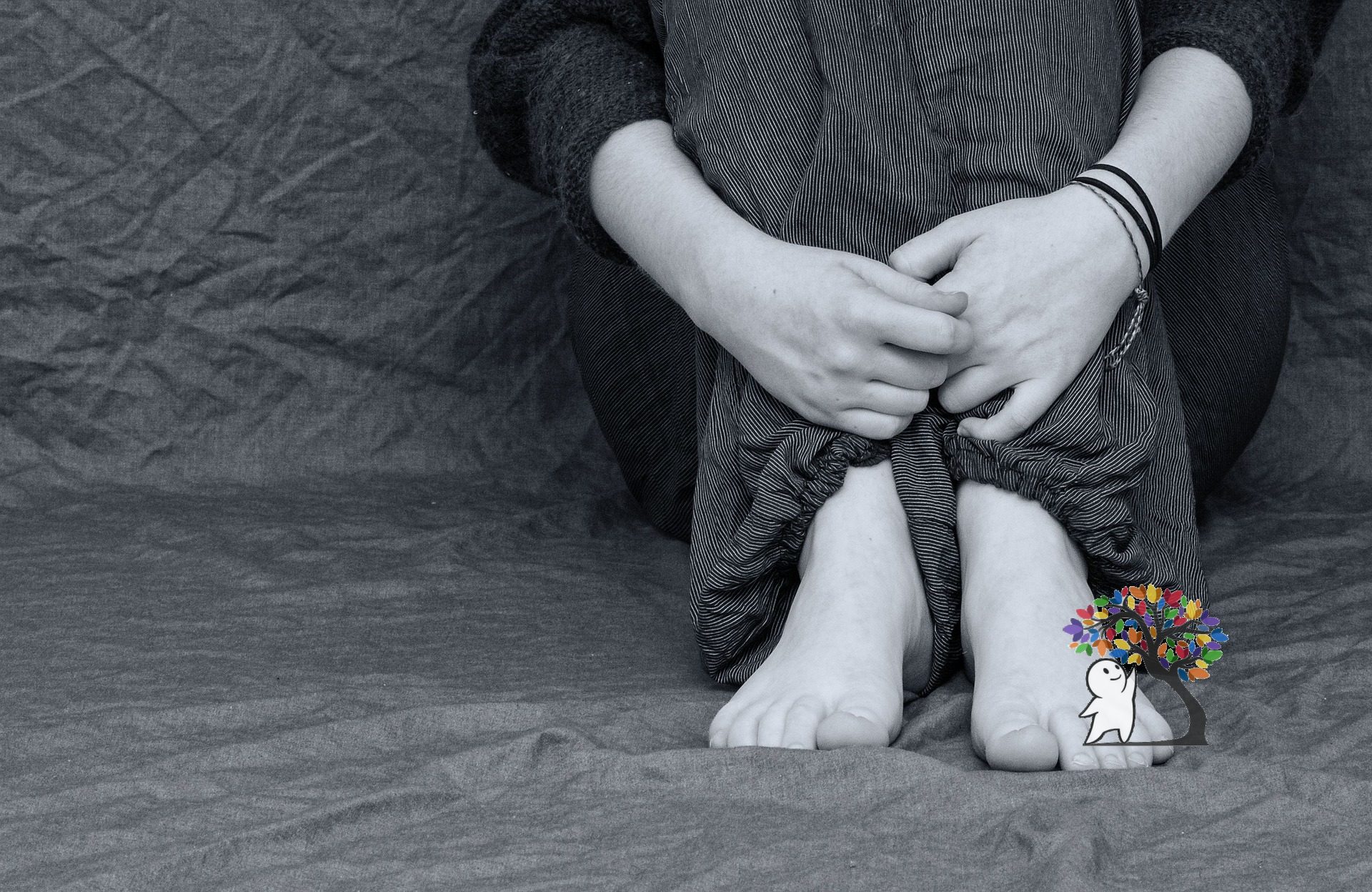7 Common Things We Tend to Fear
7 Common Things We Tend to Fear
You would think the transition from childhood into adulthood would make all fears disappear. But, even in adulthood fears tend to surface. It is no more than illusions of reality and childhood trauma.
No, I’m not saying everyone had a terrible childhood or are out of touch with reality. We all carry emotions for things that would better us if we simply let go. It’s hard to conclude letting go if you aren’t even aware of what you’re holding on to. So I’ve listed 7 common things we tend to fear and my perspective on how to begin the process of letting go.
1. Being Alone
Being alone is a fear that almost every human has experienced at one point in their lives. I have fallen victim to the fear of being alone. But, in the truth that fear wasn’t my reality. I am a sister, daughter, aunt, niece, godmother, and best friend. I have a tight crew of people who love me. My fear of being alone is baseless.
According to Robert Locke of lifehack.com, “The fear of being alone can be caused by different things. Maybe you were or felt abandoned in life before, for example, you were an abandoned child or your partner broke up with you. And so, you came to associate being alone with being unloved. Fear of being alone can also be related to a lack of self-confidence. A person who doesn’t believe in themselves may think that they are not worthy of love and that they’re not capable to make their lives better in any way.”
We are all unique individuals. We all have our thoughts and feelings. The fear of being alone doesn’t have to be negative. Locke also mentions 7 ways to overcome the fear of being alone that are very helpful. My advice is to embrace being an individual. There is no better feeling than being yourself. Even if that means being yourself by yourself.
2. Feeling Forgotten
On earth or even after, we all have the fear of being forgotten. We all work so hard to be who we want to be in life. We put in time and effort, maybe even blood, sweat, and tears.
There should be some sort of appreciation and recognition in life, whether it’s taking place at home, work, or amongst friends. Without recognition, there is a possibility that we might feel forgotten. All the hard tasks we complete daily are in vain. The attention you give to people in your life should be a two-way street.
Alexandria Brown at ThoughtCatalog.com mentions, “No one wants to be forgotten. No one wants to think that the time they’ve spent with someone meant nothing. No one wants to feel like they aren’t important. But the problem with leaving is that you can’t control how people react. For some people, it’s out of sight out of mind. Sometimes when you leave it’s hard for people to not think you’re leaving them.”
We have all been in a situation where we completely severed ties with someone. The events that transpired leading up to that separation had to be negative enough for a person to make a change. There are numerous places the fear of being forgotten can derive from. Focus on where it does not. Align yourself with people who give you daily recognition.
3. Not Feeling Heard
If you consider yourself a great communicator then this fear has crossed your mind at one time or another. But this fear too can be solved by communication, better yet attention to the communication that is taking place around you.
PathwaytoHappiness.com states, “Sometimes we feel we are not being heard. Sometimes that feeling is from an accurate assessment of other people’s behavior and sometimes it is just us. It may be because of previous emotional experience and we carry that emotion forward. We might not feel heard because in our previous experience we created the belief that we are not heard and still live within that belief paradigm.”
Pay attention to how you communicate. And how you allow others’ to communicate to you. If you find yourself overly communicative then there could be a possibility the people whom you are in association with are more focused on their perspective then a meeting of the mind.
The best way to turn this fear into a positive is to have an honest conversation with whoever you associate with. Talk about how you’re feeling as a result of a lack of healthy communication. Remember communication is key.
4. Not Feeling Loved
There could be a ton of reasons why a person would not feel loved. Not one human is above the emotion of love. We have love within our family and friends. Pets that we love. We take care of our pets because they’re our family. Even if you water plants daily those living species feel that love. As a result, those plants will grow.
Carrying the mindset of not feeling loved can lead to it becoming a reality. It doesn’t have to be that way. Changing your perspective can change your reality.
Krystine I. Batcho, Ph.D. of PsychologyToday.com stated “If you are hesitant to let someone love you, consider whether your fears are justified. Remember that being loved is an integral part of living. Being closed to love deprives another of one of the most wonderful experiences of being human—loving you. Accepting love might involve some sacrifice, but it can also be one of the most selfless, meaningful, and rewarding challenges you can take.”
It is important to search for the origin of why you might not feel loved in the first place. If you feel your feelings are valid on why certain individuals don’t exude love. Then continue to move forward. Go through the necessary healing process to find the root cause of your fears are necessary.
5. Not Feeling Included
Not feeling included is hard, especially if you strive for togetherness. Some of us have a small group of friends and others of us have associates, friends, and those friends who have friends. Feeling left out of whatever festivities are taking place is a mood killer. Because in truth we all want to feel included.
Margarita Tartkovsky, M.S. of PsychCentral.com, writes: It’s your close friends at a party, and you’re not there, because you weren’t invited. Or maybe you get to work, and everyone is talking about the cool event they went to the night before—and no one asked if you wanted to come. Or maybe it was something else altogether. Either way, the fact remains, you didn’t get an invite, and you feel awful. You feel left out.”
The easiest way to not feel left out is the set the tone. Make the first move on bringing your friends together. There might be times where you don’t feel like making the first move, that is okay. Evaluate your group of friends. There should always be a constant stream of reciprocation. But, take into consideration that everyone is working hard in their individual lives to achieve personal goals. Not everyone is on the same time schedule as you.
6. Losing A Loved One
It is a scary fear. We all are aware that the only way out of this world is through death. Whether you’ve been through a near-death experience, witnessed a relative or friend pass away, or are currently around a relative or friend who is in the final stages of their life than experiencing this fear is hard.
I experienced quite a bit of death growing up. I understood death and what it meant by the age of 7. It never got easier losing family members. But, I found healthy coping methods to get through grief.
Merely Me of HealthCentral.com, states, “It is true that death and dying are an inevitable part of life. We will undoubtedly be faced with multiple losses during our lifetime. But this doesn’t mean that we have to surrender the time we have now to fear.”
Seize the moments you have with family and friends. And if you are utilizing all the time available look into healthy coping and releasing mechanisms to do after losing someone you love. Do what feels true to you.
7. Things Not Working Out
When you work hard at something or put forth the effort you expect things to pay off. But if there is a delay the fear of that thing not working out is common. We all have experienced this. But the opposite side of that thought is knowing whatever you want to work out will.
According to Britt Bolnick at TinyBuhdda.com, “Before we can grow new things, we need to look hard at what isn’t working for us, what isn’t serving us, what needs to go to make space for new, better, more deeply satisfying things to come. That could include work, relationships, ways of spending time, and beliefs. Then we need to clean and fertilize our own fields and soil so we can intentionally plant what we want to grow.”
A personal tip I constantly use to keep the fear of things not working out away is focusing on what I can control. When I pay attention to my family, friends, and work I can maximize those relationships. I see abundance I receive into my life daily and eventually I forget about the fear of things not working out. I get in the mindset that everything will.
My call of action to you is to dive deep into what you envision your life to be without fears. Work each day to overcome those fears. Constantly focus on the life you want to live. A life without fear(s). Soon you’ll realize what was holding you back is no longer relevant. What was keeping you stagnant is history.




Responses